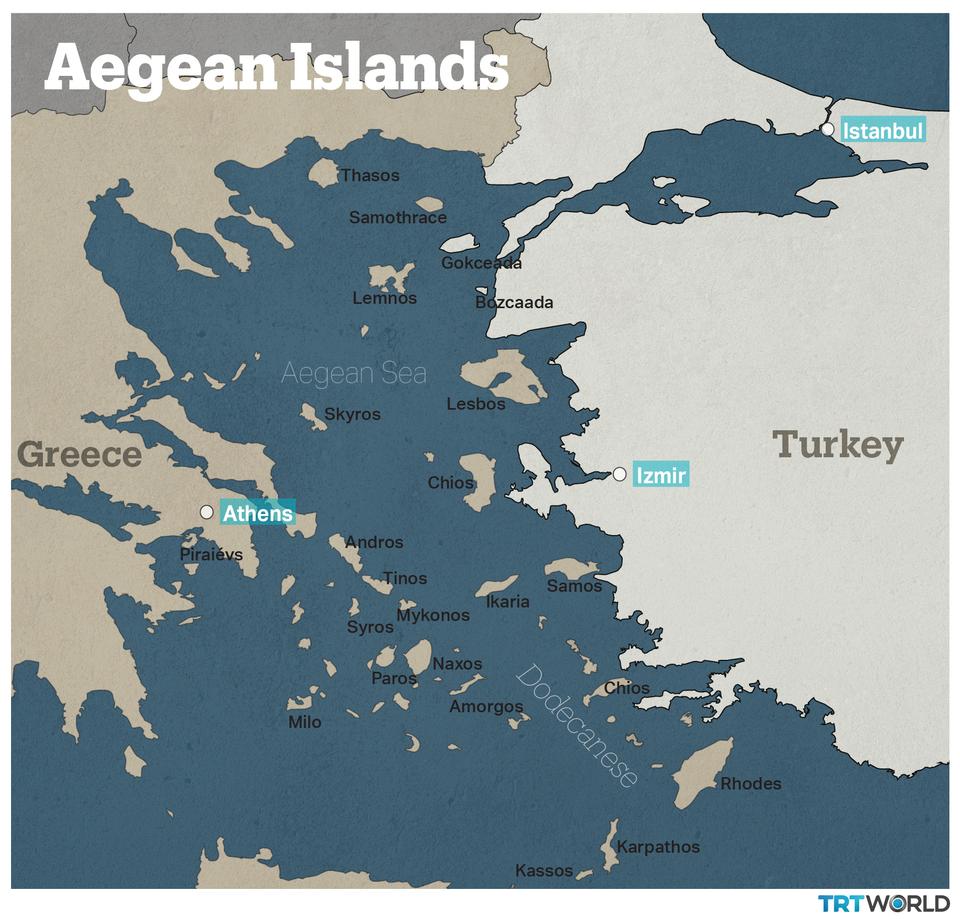
In our analysis titled "Consequences of the Material Breach of the Lausanne Peace Treaty" published on 7 October 2020, we gave information about the demilitarized status of the eastern Aegean islands in the framework of the Lausanne Peace Treaty and drew attention to the direct linkage between the possession of sovereignty over those islands and their demilitarized status. In this context, we stated that militarization of these islands in contravention of the relevant provisions of the Lausanne Peace Treaty amounts to “material breach”[1] of the mentioned treaty, since the demilitarization provisions are essential to the accomplishment of the object or purpose of the treaty. Additionally, we reminded that “the ‘material breach’ of one of the basic articles of the any peace treaty might end up with an outcome that makes sovereignty over the islands mentioned in the corresponding articles of the treaties which their provisions materially breached, questionable.”[2] In our analysis, we also underlined that the Dodecanese, consisting of large islands such as Rhodes and small islands such as Castellorizo/Meis (which are very close to the south and southwest coasts of Turkey), are in demilitarized status pursuant to Article 14 of the 1947 Paris Treaty.[3]
As per the information obtained from a regular literature review on this subject on the United Nations Office of Ocean Affairs and the Law of the Sea webpage, the Permanent Representative of Turkey to the United Nations, through his letter dated 13 July 2021 addressed to the Secretary-General of the UN, brought the issue of “the continuing flagrant violations by Greece of her solemn treaty obligations in both the Aegean Sea and the Mediterranean Sea” regarding demilitarized islands to the attention of the UN General Assembly and the UN Security Council.[4] The letter states, inter alia, the following points regarding the islands with demilitarized status:
“Upon instructions from my Government, I should like to once more bring to your attention the continuing flagrant violations by Greece of her solemn treaty obligations in both the Aegean Sea and the Mediterranean Sea concerning those islands over which sovereignty was ceded to Greece on the specific and strict condition that they be kept demilitarized ...
Greece’s continuing deliberate and persistent material breach [bold emphasis added] of the demilitarization provisions of the Lausanne and Paris peace treaties, which are essential to the accomplishment of their object and purpose, constitutes a serious threat to the security of Turkey. Equally importantly, and given their escalatory nature, such breaches carry wider implications in terms of a threat to peace and security in the region. In this context, I wish to emphasize the fact that Greece is in breach of basic provisions of the treaties under which it acquired sovereignty over the islands, which, from a legal point of view, means that Greece cannot, vis-à-vis Turkey, rely on its title under the same treaties for the purposes of a maritime boundary delimitation. This is because Greece, having failed to fulfil its obligations under the treaties, cannot at the same time be recognized as retaining the rights that it claims to derive from them. Turkey therefore, yet again, in the spirit of good-neighbourly relations and cooperation, calls upon Greece to abide by the demilitarization provisions of the above-mentioned treaties and reinstate the demilitarized status of the Eastern Aegean Islands, as it was before the occurrence of breaches.
I would be grateful if you would have the present letter circulated as a document of the General Assembly, under agenda item 76 (a), and of the Security Council.”
As we stated in our analysis dated 7 October 2020, Greece desperately tries to explain the violation of the demilitarized status of the eastern Aegean Islands by hiding behind Article 51 of the UN Charter on self-defence. She also attempts to justify her actions by pointing to the presence of the Turkish Aegean Army on the western coast of Turkey. Our view that these baseless justifications have no legal value were explained in detail in our above-mentioned analysis. Moreover, as expressed in our analysis in question, instead of openly accepting that the Dodecanese Islands were given to her under demilitarized status, Greece argues that Turkey was not a party to the 1947 Paris Peace Treaty.
Greek Minister of Foreign Affairs Nikos Dendias visited Moscow on 18 February 2022 on the eve of the recent military operation of the Russian Federation against Ukraine. According to the Greek Foreign Ministry statement, the talks between Dendias and his Russian counterpart Sergey Lavrov were “expected to focus on security in Europe, the situation in Eastern Europe, as well as on the Eastern Mediterranean.”[5] In this context, Lavrov and Dendias, following the talks, held a joint press conference on 18 February 2022. At this press conference, in response to an unrelated question by an unidentified journalist about Turkey's questioning of Greek sovereignty over the large Eastern Aegean Island, Dendias gave a remarkable answer regarding the demilitarized status of the Dodecanese. The question and answer are as follows:
“JOURNALIST: Recently we have been witnessing this new Turkish obsession, as we might call it, with Ankara questioning the Greek sovereignty over even large islands of the Eastern Aegean, combining it with the fact, making the case if you like, that they are militarized. What are the Greek arguments against this Turkish position?
N. DENDIAS: Thank you for providing me with the opportunity to explain something that I believe is obvious and I had the opportunity to make it clear in Oslo the day before yesterday. Turkey maintains an Army at full strength, the Aegean Army, and the largest landing fleet in Europe facing the Greek islands. Turkey has also issued a casus belli, a threat of war. It is the only country on the planet that has issued a threat of war against another country, namely Greece, in case Greece exercises the rights provided for by the Law of the Sea. In particular, UNCLOS, the International Convention on the Law of the Sea, signed by 168 parties including Russia, which is, by the way, our host country here today.
Therefore, I think Turkish claims are utterly pretextual. And since I am here in Moscow, Mr. Lavrov will allow me to make a remark. The agreement on the demilitarization of the Dodecanese was not related to Turkey, but to the concerns of the then Soviet Union. The Soviet Union was the beneficiary of the demilitarization, Turkey is not a signatory to the Treaty, and therefore derives no rights from it; apart from anything else. Thank you very much.”
It is highly probable that this question asked by the journalist (probably a Greek journalist) is a leading question that prompted Dendias to answer in a particular way. As expected, Dendias tried to answer the part of this question regarding the eastern Aegean islands with the known rhetoric of Greece devoid of substance, without referring to the relevant articles of the Lausanne Peace Treaty. It is noteworthy that Dendias referred to the demilitarized status of the Dodecanese without being asked about it. It is quite remarkable that Dendias, in this respect, mentioned the demilitarized status of the Dodecanese, and said that the Soviet Union was the beneficiary of the disarmament at that time. With the answer he gave to the question of the journalist, it can be said that Dendias tried to make a gesture to the Russians, to throw flowers as the phrase goes, and that he might have aimed to accelerate relations with Russia. While saying this, Dendias naturally did not neglect to emphasize that Turkey was not a party to the 1947 Paris Treaty, which seems the point he wanted to emphasize.. However, in making his customary accusatory remarks about Turkey, he openly accepts the demilitarized status of the Dodecanese as an objective fact which is closely related with security of Turkey.
An academic source confirms that the Soviet Union indeed demanded the demilitarized status of the Dodecanese in the Paris Peace Treaty negotiations.[6] As per the source, “Molotov, the Soviet Commissar of Foreign Affairs, suggested further inquiry about the islands, including the subject of demilitarization, since the Dodecanese was situated in a region near the Black Sea, in other words, relevant to Russian security.”[7] It should be noted that the Soviet Union made territorial demands from Turkey in 1945 and subsequently on 7 August 1946 formally asked the revision of the 1936 Montreux Straits Convention along with the certain territorial concessions, all of which were rejected by Turkey. It cannot be a coincidence that the Soviet Union demanded the demilitarization of the Dodecanese and the revision of the Montreux Convention at the same time.[8] It would not be wrong to state that the Russian Federation, the successor of the Union of Soviet Socialist Republics, still considers the security of the eastern Mediterranean and the Black Sea region as a whole, as it did in 1945. Against this background, it is possible to associate Dendias's mention of the demilitarized status of the Dodecanese without being asked a question with the sensitivity of the Russian Federation on this issue.
The Russian Federation's recent military operation against Ukraine seems to bring to the foreground treaties, such as the 1947 Paris Peace Treaty, a legacy of the Second World War. The intervention appears to elevate the importance of the demilitarized status of the Eastern Aegean Islands and the Dodecanese in terms of the security of the Eastern Mediterranean and Black Sea regions. Therefore, it will not be surprising that Greece's material breach of the provisions of international multilateral treaties will cause unexpected, serious problems for Greece in the coming period.
*Picture: TRT World
[1] Article 60, paragraph 3 reads as follows:
3. A material breach of a treaty, for the purposes of this article, consists in:
(a) a repudiation of the treaty not sanctioned by the present Convention; or
(b) the violation of a provision essential to the accomplishment of the object or purpose of the treaty. [bold emphasis added] United Nations, “Vienna Convention on the Law of Treaties” (United Nations, May 23, 1969), Treaty Series, vol. 1155, https://www.refworld.org/docid/3ae6b3a10.html.
[2] Teoman Ertuğrul Tulun, “Consequences of Material Breach of the Lausanne Peace Treaty,” Center For Eurasian Studies Analysis Series 2020, no. 28 (October 7, 2020): 8, https://doi.org/10.31219/osf.io/a23vw , https://avim.org.tr/en/Analiz/CONSEQUENCES-OF-MATERIAL-BREACH-OF-THE-LAUSANNE-PEACE-TREATY.
[3] 1947 Paris Treaty, SECTION V-GREECE (Special Clause), Article 14
1. Italy hereby cedes to Greece in full sovereignty the Dodecanese Islands indicated hereafter, namely Stampalia (Astropalia), Rhodes (Rhodos), Calki (Kharki), Scarpanto, Casos (Casso), Piscopis (Tilos), Misiros (Nisyros), Calimnos (Kalymnos), Leros, Patmos, Lipsos (Lipso), Simi (Sym), Cos (Kos) and Castellorizo, as well as the adjacent islets.
2. These islands shall be and shall remain demilitarized. [bold emphasis added]
3. The procedure and the technical conditions governing the transfer of these islands to Greece will be determined by agreement between the Governments of the United Kingdom and Greece and arrangements shall be made for the withdrawal of foreign troops not later than 90 days from the coming into force of the present Treaty. UN Nations, “Treaty of Peace with Italy. Signed at Paris, on 10 February 1947” (United Nations, February 10, 1947), Volume 49 1950 No 747, https://treaties.un.org/doc/publication/unts/volume%2049/v49.pdf.
[4] Feridun H. Sinirlioğlu, “Letter Dated 13 July 2021 from the Permanent Representative of Turkey to the United Nations Addressed to the Secretary-General” (General Assembly Security Council, July 13, 2021), A/75/961–S/2021/651, https://documents-dds-ny.un.org/doc/UNDOC/GEN/N21/191/06/PDF/N2119106.pdf?OpenElement.
[5] Helenic Republic Ministry of Foreign Affairs, “Minister of Foreign Affairs, Nikos Dendias, to Visit the Russian Federation” (Helenic Republic Ministry of Foreign Affairs, February 18, 2022), https://www.mfa.gr/en/current-affairs/statements-speeches/minister-of-foreign-affairs-nikos-dendias-to-visit-the-russian-federation-18022022.html.
[6] Note 71: The Russians had actually demanded a ‘complete demilitarization’ clause for the islands that would prohibit even the local gendarmerie for internal security. This demand was rejected by the Greeks and the British. The National Archives, WO 106/3262, ‘Secret telegram from U.K. Delegation, Paris to Foreign Office’, 21 September 1946. Hazal Papuççular, “Fragile Balances: Turkish Foreign Policy on the Sovereignty of the Dodecanese Islands (1940–1947),” Journal of Balkan and Near Eastern Studies 20, no. 5 (September 3, 2018): 405–19, https://doi.org/10.1080/19448953.2018.1406687.
[7] Papuççular, 10.
[8] Teoman Ertuğrul Tulun, The Montreux Convention: A Regional And Global Safety Valve, Report 17 (Ankara: Center for Euraisan Studies (AVİM), 2020), 978-605-82518-1-6 , https://doi.org/10.6084/m9.figshare.11955780.v1.
© 2009-2025 Center for Eurasian Studies (AVİM) All Rights Reserved
No comments yet.
-
 2025 MUNICH SECURITY CONFERENCE AND THE NECESSITY OF CONSTRUCTIVE EURASIANISM
2025 MUNICH SECURITY CONFERENCE AND THE NECESSITY OF CONSTRUCTIVE EURASIANISM
Teoman Ertuğrul TULUN 28.02.2025 -
 FRANCE'S COLONIAL SINS IN AFRICA: IS FRANCE REALLY NOT AN ACCOMPLICE TO THE RWANDAN GENOCIDE?
FRANCE'S COLONIAL SINS IN AFRICA: IS FRANCE REALLY NOT AN ACCOMPLICE TO THE RWANDAN GENOCIDE?
Teoman Ertuğrul TULUN 28.06.2021 -
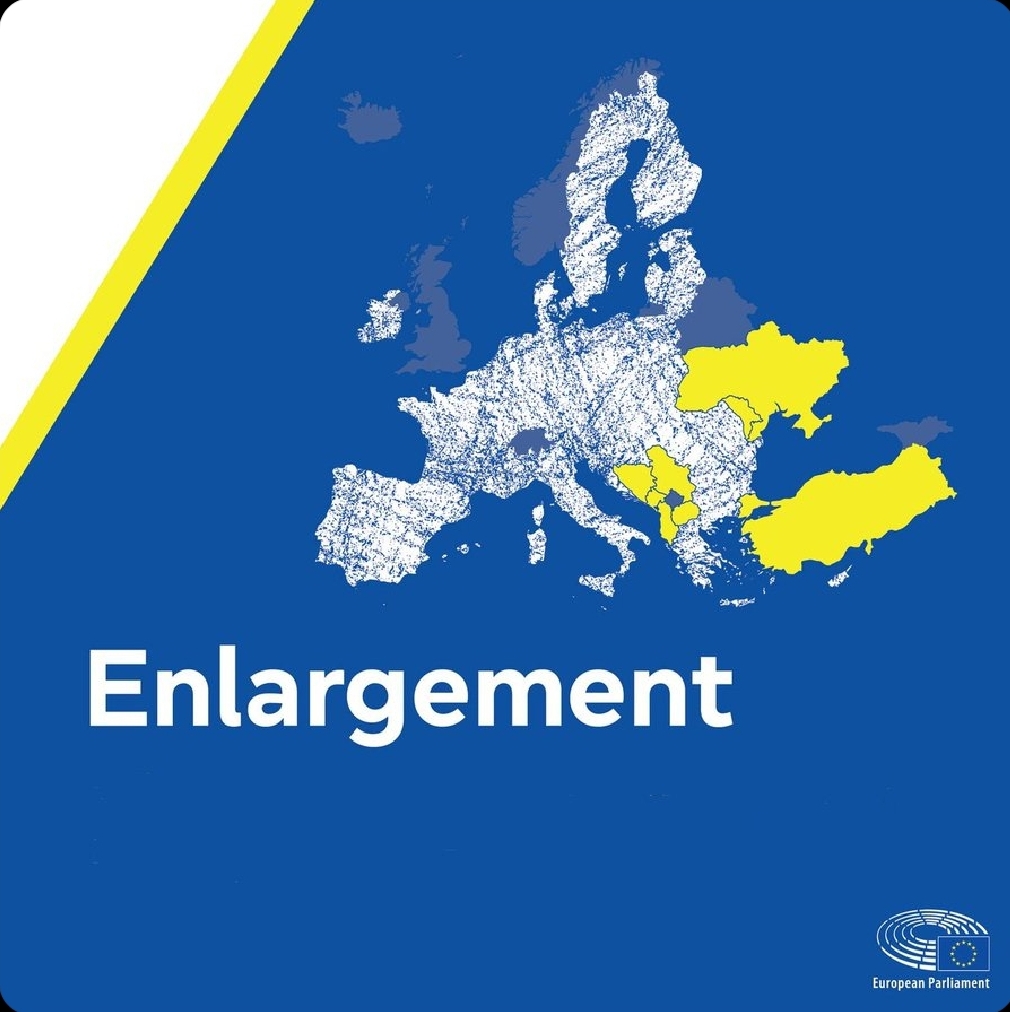 THE EU'S ENLARGEMENT PARADOX: POLITICS OVER PRINCIPLES?
THE EU'S ENLARGEMENT PARADOX: POLITICS OVER PRINCIPLES?
Teoman Ertuğrul TULUN 25.01.2024 -
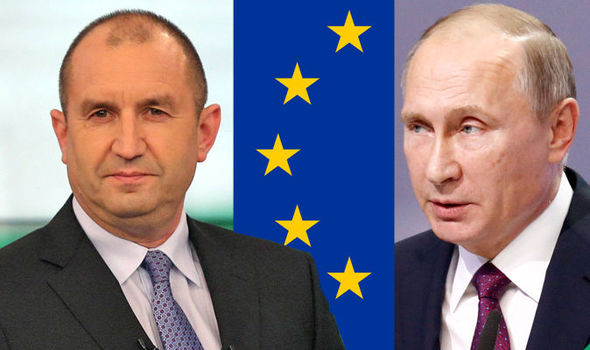 EUROPEAN UNION’S DISCRIMINATORY APPROACH TO THE BALKANS AND THE RISE OF SLAV-ORTHODOX DOMINANCE IN THE REGION
EUROPEAN UNION’S DISCRIMINATORY APPROACH TO THE BALKANS AND THE RISE OF SLAV-ORTHODOX DOMINANCE IN THE REGION
Teoman Ertuğrul TULUN 24.04.2017 -
 IS GREECE A CHINA’S “TROJAN HORSE” OR “DRAGON’S HEAD” IN EUROPE?
IS GREECE A CHINA’S “TROJAN HORSE” OR “DRAGON’S HEAD” IN EUROPE?
Teoman Ertuğrul TULUN 15.11.2019
-
 EUROPEAN UNION’S DISCRIMINATORY APPROACH TO THE BALKANS AND THE RISE OF SLAV-ORTHODOX DOMINANCE IN THE REGION
EUROPEAN UNION’S DISCRIMINATORY APPROACH TO THE BALKANS AND THE RISE OF SLAV-ORTHODOX DOMINANCE IN THE REGION
Teoman Ertuğrul TULUN 24.04.2017 -
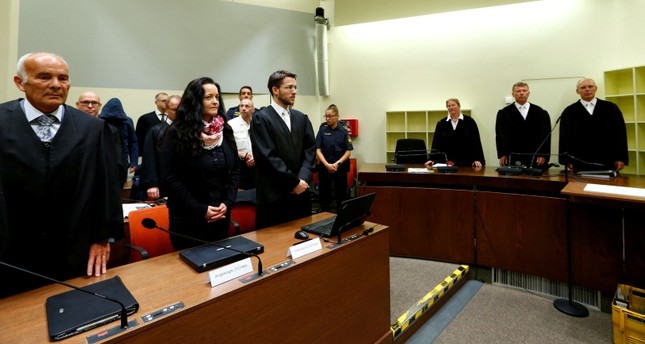 FAR-RIGHT VIOLENCE AND TERRORISM RISES IN GERMANY: NATIONAL SOCIALIST UNDERGROUND (NSU) TERRORIST GROUP AND THE MURDERS OF EIGHT TURKISH-GERMAN CITIZENS
FAR-RIGHT VIOLENCE AND TERRORISM RISES IN GERMANY: NATIONAL SOCIALIST UNDERGROUND (NSU) TERRORIST GROUP AND THE MURDERS OF EIGHT TURKISH-GERMAN CITIZENS
Teoman Ertuğrul TULUN 26.08.2019 -
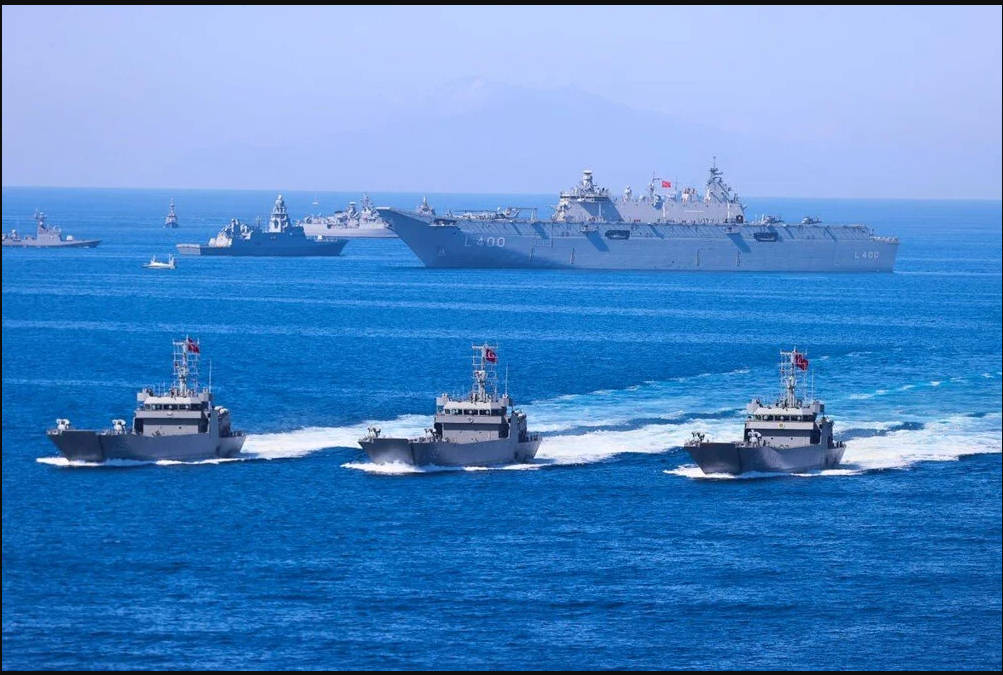 NAVAL STRENGTH IN THE AEGEAN: STRATEGIC LESSONS FROM THE BALKAN WARS
NAVAL STRENGTH IN THE AEGEAN: STRATEGIC LESSONS FROM THE BALKAN WARS
Teoman Ertuğrul TULUN 12.06.2024 -
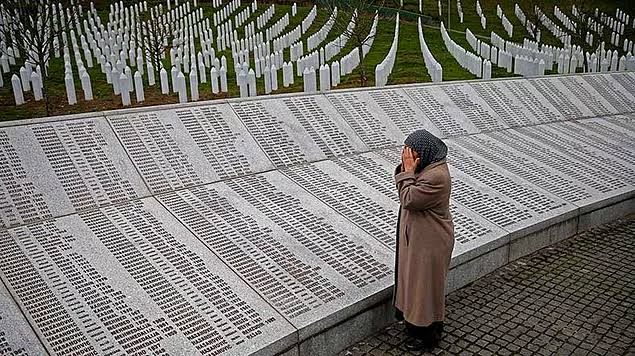 THE DEEP WOUND OF THE BOSNIAK NATION, BALKANS, AND EUROPE: THE SREBRENICA GENOCIDE
THE DEEP WOUND OF THE BOSNIAK NATION, BALKANS, AND EUROPE: THE SREBRENICA GENOCIDE
Teoman Ertuğrul TULUN 16.07.2019 -
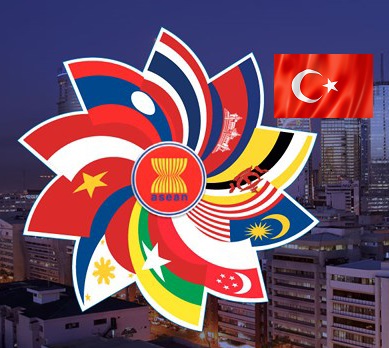 PROSPECTS FOR EXPANDING TURKEY-ASEAN RELATIONS
PROSPECTS FOR EXPANDING TURKEY-ASEAN RELATIONS
Teoman Ertuğrul TULUN 10.08.2018
-
25.01.2016
THE ARMENIAN QUESTION - BASIC KNOWLEDGE AND DOCUMENTATION -
12.06.2024
THE TRUTH WILL OUT -
27.03.2023
RADİKAL ERMENİ UNSURLARCA GERÇEKLEŞTİRİLEN MEZALİMLER VE VANDALİZM -
17.03.2023
PATRIOTISM PERVERTED -
23.02.2023
MEN ARE LIKE THAT -
03.02.2023
BAKÜ-TİFLİS-CEYHAN BORU HATTININ YAŞANAN TARİHİ -
16.12.2022
INTERNATIONAL SCHOLARS ON THE EVENTS OF 1915 -
07.12.2022
FAKE PHOTOS AND THE ARMENIAN PROPAGANDA -
07.12.2022
ERMENİ PROPAGANDASI VE SAHTE RESİMLER -
01.01.2022
A Letter From Japan - Strategically Mum: The Silence of the Armenians -
01.01.2022
Japonya'dan Bir Mektup - Stratejik Suskunluk: Ermenilerin Sessizliği -
03.06.2020
Anastas Mikoyan: Confessions of an Armenian Bolshevik -
08.04.2020
Sovyet Sonrası Ukrayna’da Devlet, Toplum ve Siyaset - Değişen Dinamikler, Dönüşen Kimlikler -
12.06.2018
Ermeni Sorunuyla İlgili İngiliz Belgeleri (1912-1923) - British Documents on Armenian Question (1912-1923) -
02.12.2016
Turkish-Russian Academics: A Historical Study on the Caucasus -
01.07.2016
Gürcistan'daki Müslüman Topluluklar: Azınlık Hakları, Kimlik, Siyaset -
10.03.2016
Armenian Diaspora: Diaspora, State and the Imagination of the Republic of Armenia -
24.01.2016
ERMENİ SORUNU - TEMEL BİLGİ VE BELGELER (2. BASKI)
-
AVİM Conference Hall 24.01.2023
CONFERENCE TITLED “HUNGARY’S PERSPECTIVES ON THE TURKIC WORLD"









